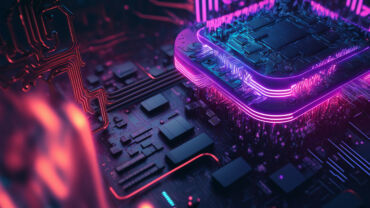The American Bar Association’s change in 2012 to its Model Rules of Professional Conduct Rule 1.1 to include "technological competence", is an important mandate for practitioners to keep abreast of key developments in new legal technology. But for a lawyer, what does technical competence really mean?
As of this writing, 31 states in the U.S. have amended their rules of ethical conduct to include “technology competence” as a fundamental duty of practicing attorneys.
The specific language used in each state varies, but all are derived from the American Bar Association’s 2012 change to include technological competence as part of its Model Rules of Professional Conduct Rule 1.1, which reads: “To maintain the requisite knowledge and skill, a lawyer should keep abreast of the law and its practice, including the benefits and risks associated with relevant technology, engage in continuing study and education and comply with all continuing legal education requirements to which the lawyer is subject.”
But for a lawyer, what does technical competence really mean?
By design, the ABA’s rule change and states’ subsequent adoption of it constitutes the vaguest possible call for lawyers to recognize the increasingly important role technology plays in the practice of law. Florida is the only state to attach a mandatory continuing legal education (CLE) requirement for technology. The requirement: Three hours of technology CLE every three years.
An hour a year is a laughably inadequate amount of time for lawyers to study the myriad and ever-evolving influence of technology on the legal profession, much less its impact on society at large. But it’s a start, and states adopting the rule are really just reiterating the basic notion that in order to function effectively in today’s legal landscape, lawyers need to maintain a relatively high level of technical literacy.
“Competence” is the word most commonly used to describe the level of technical proficiency a lawyer is duty-bound to maintain. No one knows precisely what that means, however — only that it is important enough to worry about.
The question no one can answer is: What does a lawyer really need to know about technology?
“Competence” is the word most commonly used to describe the level of technical proficiency a lawyer is duty-bound to maintain. No one knows precisely what that means, however — only that it is important enough to worry about.
For attorneys intent on fulfilling their ethical duty, and especially those who pride themselves on being the smartest person in the room, an open-ended call to understand as much as possible about the technological universe is bound to cause some anxiety. Vexing new terms and concepts bubble up from the tech firmament every day — cryptocurrency, blockchain, data mining, net neutrality, 5G, augmented reality, trojan, as well as a dizzying blizzard of acronyms: UX vs. UI, SAAS, CDN, SAML, GDPR, MCN, SSL, etc.
The point is, “keeping abreast” of developments in technology is not something that can be accomplished with a little light studying here and there. To maintain a responsible awareness of the “benefits and risks” of relevant technologies, a lawyer today must be an informational omnivore with a sustained interest in technology as a fundamental building block of the contemporary world. And that interest must include a working knowledge of the infrastructure that enables and empowers today’s technology, if only to be made aware of one’s blind spots and protect oneself from the dangers of technological apathy.
As David Reis, Counsel at Clark Hill PLC, notes in the ABA’s TechReport 2017:
Attorneys have common law duties to protect client information and often have contractual and regulatory obligations to protect information relating to clients and other personally identifiable information, like health and financial information. These duties present a challenge to attorneys using technology because they are not technologists and often lack training and experience in security. Compliance requires attorneys to understand limitations in their knowledge and to obtain sufficient information to protect client information, to get qualified assistance if necessary, or both. These obligations are minimum standards, and failure to comply with them can constitute unethical or unlawful conduct. Attorneys should aim for security that goes beyond these minimums as a matter of sound professional practice and client service.
Technological competence isn’t a skill attorneys can simply add to their CLE checklist — it’s something that needs to be woven into their DNA.






